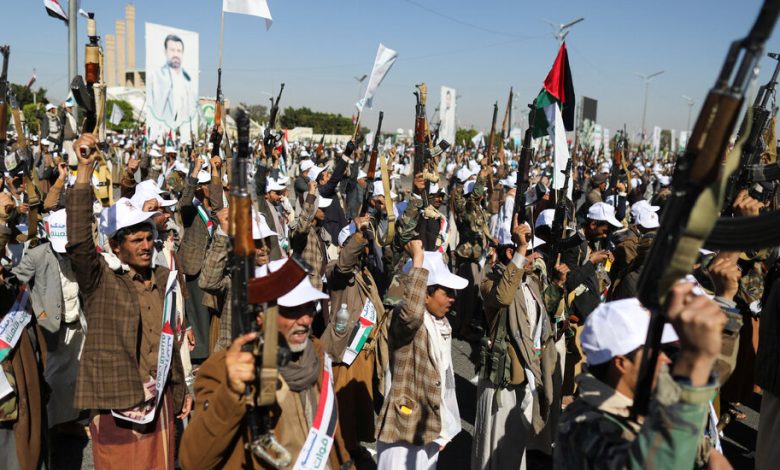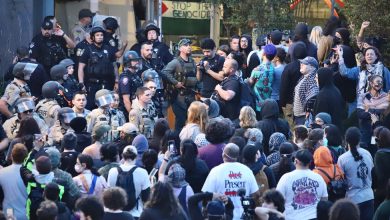Strikes Are ‘Extremely Unlikely’ to Deter Houthis, Experts Say

The American-led airstrikes in Yemen on Friday could play into the agenda of the Houthis, the Iran-backed militia that rules much of northern Yemen, and are unlikely to stop the group’s campaign of attacking commercial ships, scholars who study the group said.
“This was not a miscalculation by the Houthis,” said Hannah Porter, a senior research officer at ARK Group, a British company that works in international development. “This was the goal. They hope to see an expanded regional war, and they are eager to be on the front lines of that war.”
Within hours of the strikes, a senior Houthi official said that the United States and Britain, which joined the strikes along with some other American allies, would soon realize that they had engaged in “the biggest folly in their history.”
“Yemen is not an easy military opponent that can be subdued quickly,” the official, Mohammed al-Bukhaiti, said in a post on the social media platform X. “It is ready to enter a long-term battle that will change the direction of the region and the world.”
The war in Gaza has catapulted the Houthis to unlikely prominence. Over the past three months, the militia has shot missiles toward Israel and attacked commercial ships passing through the Red Sea in what they say is an attempt to stop Israel’s bombardment of Gaza.
The group has honed its military capabilities through years of civil war. In 2014, the Houthis — who espouse a religious ideology inspired by a sect of Shiite Islam — took over the Yemeni capital, Sana. A Saudi-led coalition launched a military intervention to oust them but failed, deepening one of the world’s worst humanitarian crises while leaving the Houthis in power in northern Yemen. There, they have created an impoverished proto-state that they rule with an iron fist.
“They calculate that there aren’t many valuable targets that the U.S. and U.K. can strike, as the country is already in ruins,” said Abdullah Baabood, an Omani academic and senior nonresident scholar at the Carnegie Middle East Center. “Therefore they will not hesitate to keep testing the situation and escalating the conflict.”
The Houthis have long built their legitimacy on hostility toward the United States and Israel, and support for the Palestinian cause. Part of the group’s slogan is: “Death to America, death to Israel, a curse upon the Jews.” Before the strikes on Friday, the group’s leaders had welcomed the prospect of war with the United States.
Strikes are therefore “extremely unlikely” to stop the group’s Red Sea attacks, Ms. Porter said.
“The Houthis are very comfortable operating in a wartime environment,” she said. “They are more successful as a military group than they are as a government.”
The strikes could also help the Houthis with domestic politics, providing “another ‘foreign enemy’ pretext to distract the public from their failing rebel governance that does not deliver services,” said Ibrahim Jalal, a Yemeni nonresident scholar at the Middle East Institute, a Washington-based research organization.
Some American allies in the region, including Qatar and Oman, had privately warned the United States that bombing the Houthis would only deepen regional tensions.
But U.S. officials and those from allied Western governments said the Houthis’ continuing attacks left them with little choice but to respond. Pentagon officials said that they were still assessing whether the strikes were successful, and emphasized that they had sought to avoid any civilian casualties. A Houthi military spokesman said that five of the group’s fighters had been killed.
Still, for Yemenis living under Houthi control, the bombardment was a reminder of years of airstrikes by the Saudi-led coalition, many of which were carried out with American weapons and assistance.
Ali Abdullah Al-Sunaidar, a Yemeni photojournalist who lives in the old city of the Sana, said his family was “terrified and anxious.” They opened the windows as soon as the strikes began, knowing from experience that nearby bombings can damage old mud-brick dwellings if the windows are closed.
“We hope that the war in general will end once and for all,” said Mr. Al-Sunaidar, the father of 2-year-old twin girls. “We’ve been living in tension, dread, and horror for the last nine years.”



